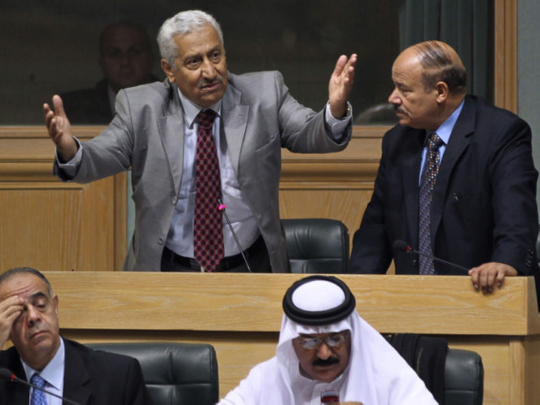
Amman: Jordan’s King Abdullah on Wednesday designated veteran politician Abdullah Nsur to form a new government after prime minister Fayez Tarawneh and his government resigned ahead of legislative polls.
“The king today accepted the resignation of Fayez Tarawneh’s government and asked Nsur to form a new government,” a senior palace official told AFP.
“Tarawneh’s resignation came in line with the recently introduced constitutional amendments stipulating that the government must resign following the dissolution of parliament.”
The king last Thursday dissolved the parliament and called early elections. No date has been given for the polls, but the monarch has said he wants them to be held by the end of 2012.
The newly-established Independent Election Commission will set the election date as it is the constitutionally mandated body to oversee the polls, the official said.
Nsur, an outspoken MP and senator who has repeatedly called for sweeping reforms and a tough fight against corruption, held the portfolios of foreign affairs, planning, education and information in several governments in the 1980s and 1990s.
King Abdullah said the new government must work to ensure that all segments of the Jordanian society take part in the election.
“The primary responsibility of this government in this transitional phase is to pave the way for a qualitative leap in Jordan’s political history and democratisation,” the king told Nsur in his letter of designation.
“Between now and election day, your government is expected to continue dialogue with all segments of society, political parties and political forces, to encourage them to effectively take part in the elections as candidates and voters.”
The dissolution of parliament has failed to convince the Islamist opposition led by the Muslim Brotherhood to reverse its boycott of the electoral process, which it says favours government loyalist rural areas at the expense of urban areas seen as Islamist strongholds.
The opposition has also demanded a parliamentary system in which the prime minister would be elected rather than appointed by the king.
Thousands of people, mainly Islamists, demonstrated on Friday to demand reforms in the country. Jordan has seen a series of protests since January 2011 to call for political and economic reforms and to demand an end to corruption.












